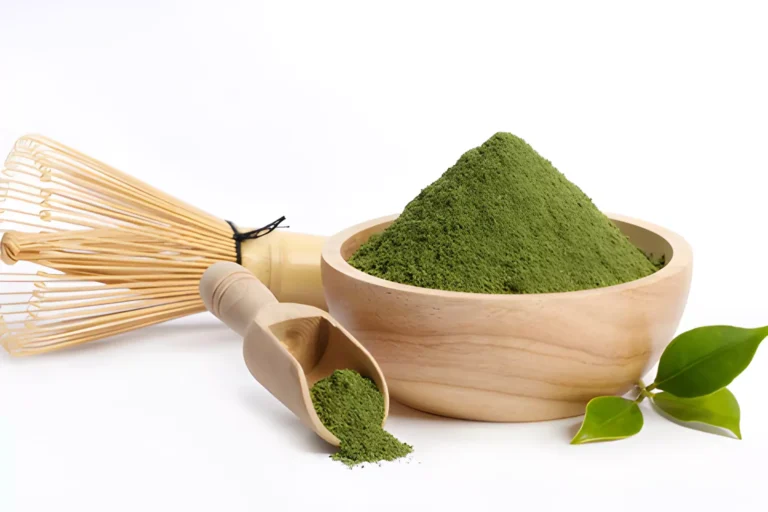How to Eat Moringa Seeds Without the Bitter Taste
Moringa seeds are the edible kernels of the moringa tree, a plant native to India and Africa. Moringa seeds are rich in protein, vitamins, minerals, and antioxidants, making them a superfood with many health benefits. However, moringa seeds also have a bitter and spicy taste that some people may find unpleasant. So, if you want to know how to eat moringa seeds without the bitter taste, here are some tips and tricks to help you.
5 Ways to Eat Moringa Seeds Without the Bitter Taste
Peel off the outer shell
The outer shell of the moringa seeds is hard and fibrous, containing most of the bitterness. To remove the shell, you can use a pestle, a hammer, or a nutcracker to crack it open gently. Then, separate the shell from the white kernel inside. The grain is the edible part of the seed and has a milder taste than the shell.
Soak or boil the seeds
Another way to reduce the bitterness of moringa seeds is to soak or boil them in water. This will help to leach out some of the bitter compounds and soften the texture of the seeds. You can soak the seeds overnight in cold water or boil them for 15 to 20 minutes in hot water. After soaking or boiling, drain the water and rinse the seeds well.
Roast or toast the seeds
Roasting or toasting moringa seeds can enhance their flavor and make them more crunchy and nutty. You can roast the seeds in an oven at 180°C for 10 to 15 minutes or toast them in a skillet over medium heat for 5 to 10 minutes. Make sure to stir or shake them occasionally to prevent burning. You can also season the seeds with salt, spices, or honey.
Blend or grind the seeds
Roasting or toasting moringa seeds can enhance their flavor and make them more crunchy and nutty. You can roast the seeds in an oven at 180°C for 10 to 15 minutes or toast them in a skillet over medium heat for 5 to 10 minutes. Make sure to stir or shake them occasionally to prevent burning. You can also season the seeds with salt, spices, or honey.
Sprout the seeds
Sprouting moringa seeds can increase their nutritional value and reduce their bitterness. Sprouting is germinating seeds by soaking them in water and exposing them to light and air. Sprouted moringa seeds have higher levels of enzymes, vitamins, minerals, and antioxidants than unsprouted ones.
How to Eat Moringa Seeds
Depending on your preference and taste, there are many ways to eat moringa seeds. Here are some ideas:
- Sprinkle them on salads, soups, and yogurt. Moringa seeds have a slightly nutty flavor and crunchy texture, adding a nice touch to many dishes.
- Blend them into smoothies and shakes. Moringa seeds are a great way to boost nutrients to your favorite smoothies and shakes. They have a mild flavor that won’t overpower other ingredients.
- Roast them and eat them as a snack. Roasted moringa seeds are a delicious and healthy alternative to other snacks like nuts and chips. Toss them in a small amount of oil and salt, and roast in a preheated oven at 350 degrees Fahrenheit for 10-15 minutes or until golden brown and crispy.
- Grind them into a powder and add it to food and drinks. Moringa powder is a versatile ingredient that can be added to all sorts of things, from oatmeal and yogurt to baked goods and smoothies. It has a slightly earthy flavor that adds a unique dimension to dishes.
- Make moringa tea. To make moringa tea, simply steep a teaspoon of moringa powder or crushed seeds in a cup of hot water for 5-10 minutes. You can add honey or lemon to taste.
The Benefits of Eating Moringa Seeds
Eating raw moringa seeds may have several benefits for your health. Some of the possible benefits are:
- Protecting and nourishing your skin and hair, as moringa seeds are rich in antioxidants, vitamins, minerals, and fatty acids that can moisturize, repair, and protect your skin and hair from damage.
- Lower your blood pressure and cholesterol levels, as moringa seeds have anti-hypertensive and anti-cholesterolemic effects that can relax your blood vessels, improve your blood circulation, and reduce the amount of lipids in your blood.
- Regulating your blood sugar and preventing diabetes, as moringa seeds can stimulate insulin secretion, enhance glucose utilization by your cells, and lower your blood sugar levels.
- Protect your liver and kidneys from damage caused by toxins, drugs, alcohol, or infections, as moringa seeds can enhance the detoxification and regeneration of your liver and kidneys by increasing their antioxidant capacity and reducing their oxidative stress.
- Prevent and treat cancer, as moringa seeds contain niazimicin, a compound that suppresses the development of cancer cells. Moringa seeds also have anti-inflammatory properties that can prevent or treat cancer-related inflammation.
- Treating stomach upset, as moringa seeds, can improve intestinal motility and peristalsis, increase intestinal flora and fauna, and prevent or treat digestive disorders such as diarrhea, dysentery, ulcers, or irritable bowel syndrome.
- Act as a sleep aid, as moringa seeds can help you relax and induce sleep by affecting the neurotransmitters in your brain.
- Boost your brain function and memory, as moringa seeds can enhance cognitive abilities such as learning, memory, attention, concentration, or reasoning. Moringa seeds can also protect your brain from degeneration and damage caused by aging, stress, or neurotoxins.
However, eating too many raw moringa seeds may also have some side effects, so keep that in mind and always keep it in a moderate amount.
Conclusion
Moringa seeds are a superfood that can offer you many health benefits. However, they also have a bitter and spicy taste that some people may not like. To eat moringa seeds without the bitter taste, you can peel off the outer shell, soak or boil the seeds, roast or toast the seeds, blend or grind the seeds, or sprout the seeds. You can then enjoy them in various ways, such as raw, cooked, roasted, blended, ground, or sprouted. Eating moringa seeds can improve your health and wellness in many ways.




